The Curious Case of the Bait Bike
You push through the heavy doors of the library and into the darkness on SW 10th. The cool fall air sends a shiver up your spine; you pull your coat a little tighter. These days, the library feels like one of the last truly public spaces left in town: a place where anyone can come in from the cold or use the bathroom 一 simply be a human 一 without having to pay a fee.
You’ve had a fruitful night of research. Now you know the Central Library sits just outside the boundaries of Clean & Safe, an Enhanced Services District (ESD) where private armed security officers freely roam the streets with no oversight from the city. In that sense, Clean & Safe is the opposite of the library: Instead of opening its arms to neighbors seeking shelter, the ESD forces out people who have nowhere else to go.
The bell of the streetcar clangs, pulling you out of your reveries. You rush on board towards your next destination. After a few stops, you hop off and hurry inside a dingy brick building. Down the hall, light streams through a frosted glass door emblazoned with the words “CRIMINAL DEFENSE.”
You nudge the door open. Behind a desk littered with stacks of paper, a woman in a Stetson fedora punches notes into a battered typewriter. A cigarette dangles from her lips. Maybe she’s leaning a little hard into this Maltese Falcon bit. Then again, with everything you’ve learned about Clean & Safe, you’re starting to feel like you stepped onto the set of a film noir.
“Ah, come in,” she says, clearing a seat. “I wondered when you’d come to see me. They say I’m a criminal defense lawyer, but I’ll tell you what: the real criminals aren’t my clients on the streets 一 they’re the ones working in swanky high-rises downtown.”
You came to her office on a tip from your contacts on the street. She’d taken on pro bono work for houseless folks who had run-ins with Clean & Safe security. She says, “The sweeps are traumatizing and inhumane. They’re also criminal: City contractors steal the belongings of houseless community members and take them to the dump. In at least one case, they stole a woman’s medication, leading to her death!”
But sweeps are just the beginning, she explains. ESDs increase resources for policing, which in turn increases criminalization. Within ESDs, houseless people are arrested 22 times more frequently than in other parts of Portland. ESD resources may even create crime where it doesn’t otherwise exist: Clean & Safe and its private security contractor recently bought the Portland police a “bait bike,” a $2,000 bicycle equipped with GPS tracking, to ensnare people into theft.
Even worse, some ESDs pay for extra staff members in district attorneys’ offices to speed up prosecution. Pre-pandemic, ESDs also funded and operated community courts that could sentence people who were arrested to clean the streets under the supervision of ESDs 一 all for the crime of being poor.
“Those DAs in their $3,000 suits and air conditioned offices love to prosecute people for the terrible offense of napping in public,” she snorts.
You’re starting to connect the dots. Under the guise of Clean & Safe, private businesses are building their own security forces, increasing arrests, funding prosecutors, and sentencing houseless people to do their bidding for free. They really are running a secret city within the city.
As the lawyer finishes her story, she says, “If you want to get to the bottom of this, you’ll need to look into who runs Clean & Safe.” Suddenly, she leans forward and points a shaking finger at you. “But if you do, be on your guard. Powerful people are wrapped up in this … and they’ll do anything they can to keep their grip on this city.”
Stepping back outside onto the foggy streets downtown, you can’t help but wonder: Who is really the criminal in this case? Who are the puppeteers pulling the strings? What’s their agenda? Who really runs Clean & Safe … and the streets of downtown Portland?
Find out in next week’s installment …
